See updated list of 10 Most Censored Countries at https://cpj.org/reports/2019/09/10-most-censored-eritrea-north-korea-turkmenistan-journalist.php.
The 2015 list of 10 Most Censored Countries is part of CPJ’s annual publication, Attacks on the Press.
10 Most Censored Countries
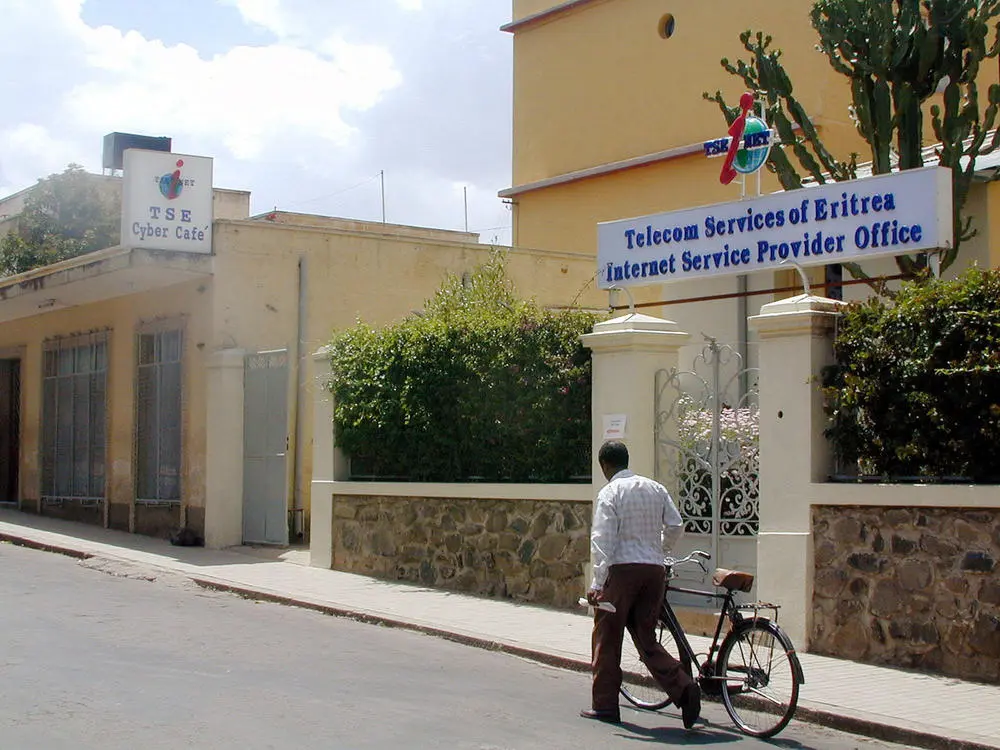
1. Eritrea
Leadership: President Isaias Afewerki, in power since 1993. How censorship works: Only state media is allowed to disseminate news; the last accredited international correspondent was expelled in 2007. Even those working for the heavily censored state press live in constant fear of arrest for any report perceived as critical to the ruling party, or on suspicion that they leaked information outside the country. The last privately owned media outlets were suspended and their journalists jailed in 2001. Many remain behind bars; Eritrea has the most jailed journalists in Africa. None of those arrested are taken to court, and the fear of arrest has forced dozens of journalists into exile. Those in exile try to provide access to independent online news websites and radio broadcasts, but the opportunity to do so is limited because of signal jamming and tight online control by the sole state-run telecommunications company, EriTel. All mobile communications must go through EriTel, and all Internet service providers must use the government-controlled gateway. Access to the Internet is extremely limited and available only through slow dial-up connections. Less than 1 percent of the population goes online, according to U.N. International Telecommunication Union figures. Lowlight: Five independent journalists who were arrested in 2001 may have died in prison, according to recent exiles. With limited access to information in Eritrea, CPJ cannot independently confirm the deaths and continues to list the journalists on its prison census as a means of holding the government accountable for their fate.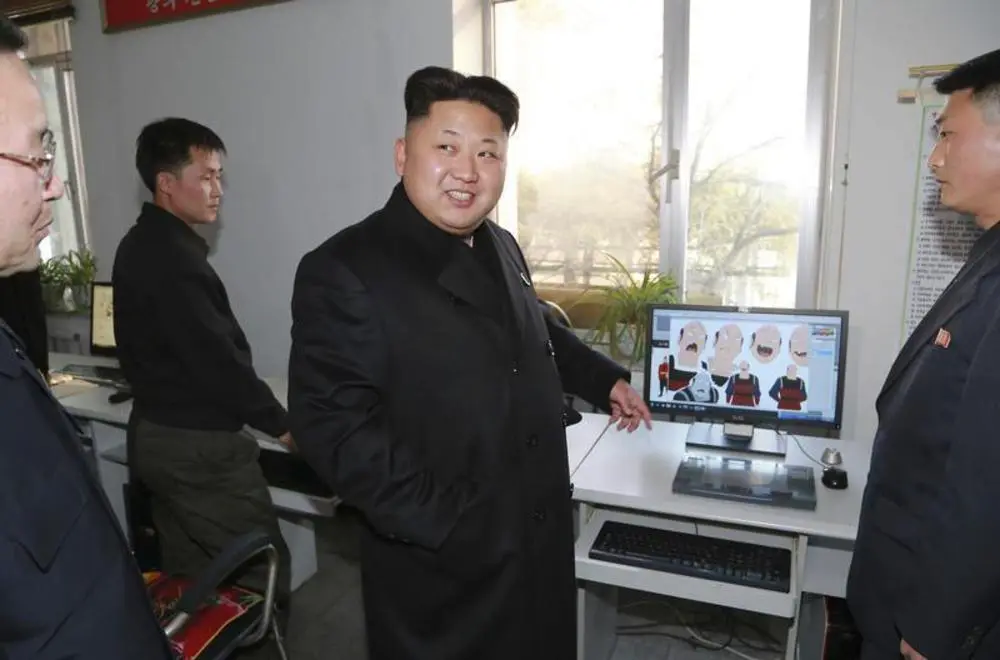
2. North Korea
Leadership: Kim Jong Un, who took over after his father, Kim Jong Il, died in December 2011. How censorship works: Article 53 of the country’s constitution calls for freedom of the press, but even with an Associated Press bureau-staffed by North Koreans and located in the Pyongyang headquarters of the state-run Korean Central News Agency-and a small foreign press corps from politically sympathetic countries, access to independent news sources is extremely limited. Nearly all the content of North Korea’s 12 main newspapers, 20 periodicals, and broadcasters comes from the official Korean Central News Agency, which focuses on the political leadership’s statements and activities. Internet is restricted to the political elite, but some schools and state institutions have access to a tightly controlled intranet called Kwangmyong, according to the AP. North Koreans looking for independent information have turned to bootlegged foreign TV and radio signals and smuggled foreign DVDs, particularly along the porous border with China. Although cell phones are banned, some citizens have been able in recent years to access news through smuggled phones, which rely on Chinese cell towers. South Korean newspapers have reported that North Korea in 2013 started manufacturing smartphones that run on a network built by the Egyptian company Orascom and the state-owned Korea Post and Telecommunications Corp. Traders in street markets are regularly seen with 3G phones that can support video exchange and texting, according to travelers returning from North Korea. Lowlight: After Kim Jong Un ordered his uncle, Jang Song Thaek, executed (around the time of the second anniversary of his father’s death), any mention of Jang was removed from state media archives, including official video from which Jang was carefully edited. Jang was vilified in the media as the “despicable human scum, who was worse than a dog.”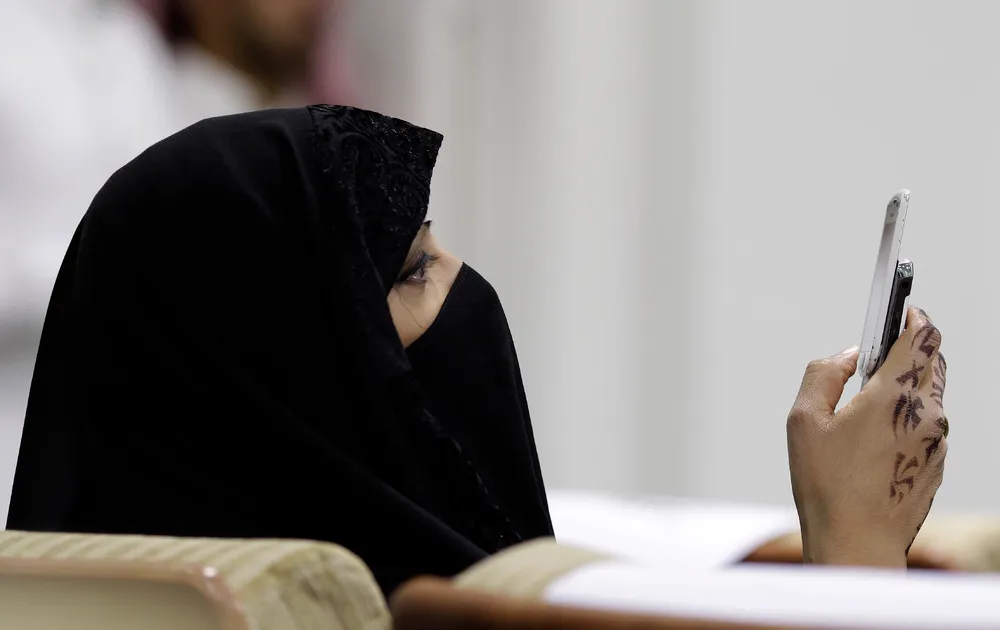
3. Saudi Arabia
Leadership: King Salman bin Abdulaziz al-Saud, who took power in January 2015 after the death of his half-brother, King Abdullah. How censorship works: The Saudi government has progressively intensified legal repression since the Arab Spring. Amendments to the press law in 2011 punished the publication of any materials deemed to contravene sharia, impinge on state interests, promote foreign interests, harm public order or national security, or enable criminal activity. In 2014, the government issued a new anti-terrorism law and regulations that Human Rights Watch said will “criminalize virtually any expression or association critical of the government and its understanding of Islam.” The law granted the Specialized Criminal Court, established in 2008, the ability to hear unchallenged testimony while the defendant or the defendant’s lawyer is absent. The General Commission for Audiovisual Media announced in April 2014 that it will monitor online and YouTube content to ensure that Saudi contributors, among the largest audience for the online video-sharing site, adhere to government guidelines. YouTube is used by many Saudis to address controversial issues, such as women driving, and to document events not covered in the media, such as the stabbing of a Canadian in a Dhahran city mall in November 2014. Saudi Arabia also used its regional influence in the Gulf Cooperation Council to pass restrictions that prevent media in member states from criticizing the leadership of other member states. Lowlight: A string of arrests and prosecutions of those expressing independent views took place in 2014. Many of those arrested were accused of press-related charges after covering protests. In October the government used a 2007 anti-cybercrime law to charge at least seven Saudis in connection with their use of Twitter to allegedly criticize the authorities and to call for women to be allowed to drive.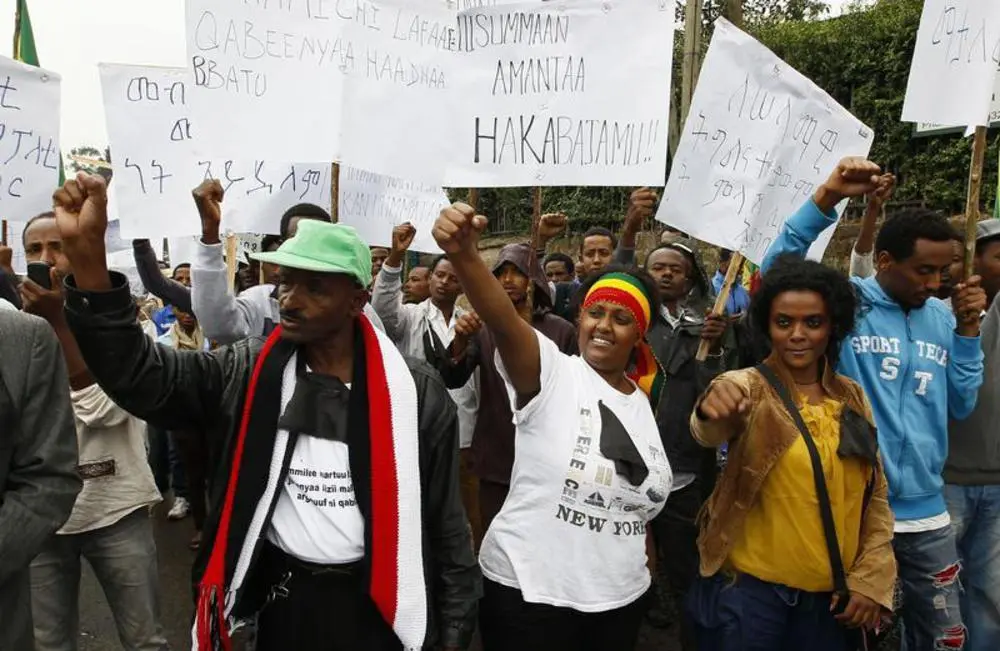
4. Ethiopia
Leadership: Prime Minister Hailemariam Desalegn, in power since September 2012. How censorship works: As Ethiopia prepared for its May 2015 elections, the state systematically cracked down on the country’s remaining independent publications through the arrests of journalists and intimidation of printing and distribution companies. Filing lawsuits against editors and forcing publishers to cease production have left only a handful of independent publications in a country of more than 90 million people. Ten independent journalists and bloggers were imprisoned in 2014; authorities filed a lawsuit in August accusing six publications of “encouraging terrorism,” forcing at least 16 journalists to flee into exile. There are no independent broadcasters, though broadcasts from the U.S.-based opposition Ethiopian Satellite Television (ESAT) intermittently air within the country. The state-controlled telecommunications company Ethio Telecom is the sole Internet provider and routinely suspends critical news websites. International journalists work in Ethiopia, but many are under surveillance and face harassment. Although journalists have not had difficulties acquiring accreditation in the past, newer arrivals say that they face challenges. Lowlight: Authorities in 2014 unleashed the largest onslaught against the press since a crackdown in 2005 after disputed parliamentary elections. Ten independent journalists and bloggers were arrested on anti-state charges, and at least eight independent publications were shut down.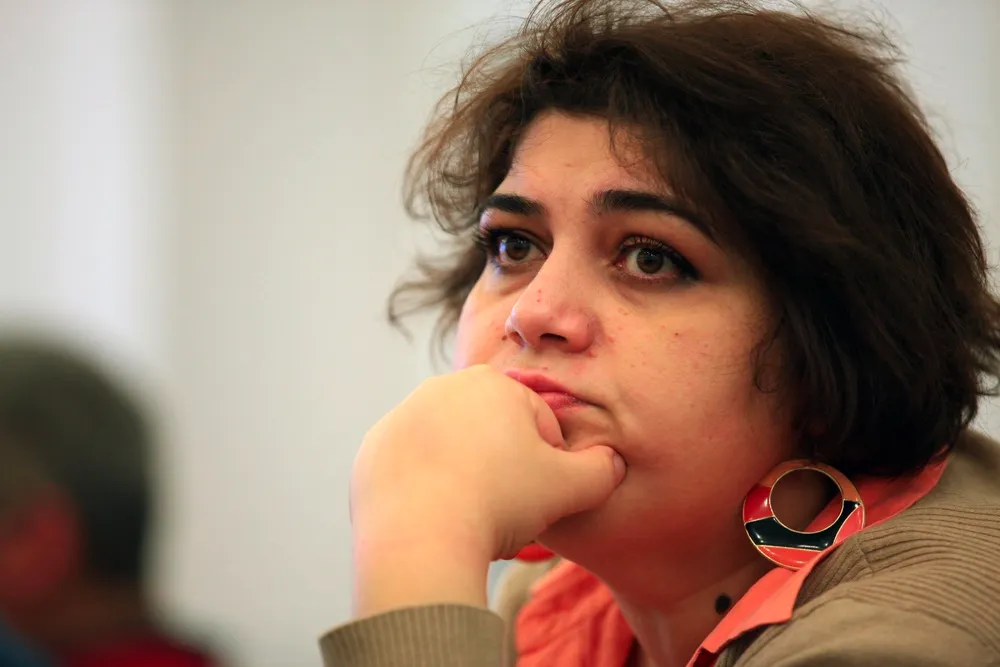
5. Azerbaijan
Leadership: President Ilham Aliyev has been in power since October 2003, after being named successor by his father. How censorship works: The main sources of information in Azerbaijan are broadcasters, which are owned and controlled by the state or its proxies. International broadcasters are barred or their satellite signals are jammed. Critical print outlets have been subjected to harassment from officials, including debilitating lawsuits, evictions, a ban on foreign funding, and advisories to businesses against advertising. Online speech is subject to self-censorship because of a criminal defamation law that carries a six-month prison sentence. News and social media websites are blocked arbitrarily. At least 10 journalists and bloggers, including the award-winning reporter Khadija Ismayilova, are in Azerbaijani jails. Several critical journalists fled the country in 2014, and those remaining faced attacks and harassment, were banned from traveling, or were prosecuted on fabricated charges. Lowlight: Emin Huseynov, director of the Institute for Reporters’ Freedom and Safety (IRFS), was forced into hiding in August after authorities raided his office, confiscated all of IRFS’ documents, and sealed the premises. Several other international non-governmental organizations that supported the local media were also forced to cease work in Azerbaijan after authorities accused them of tax evasion, raided their offices, and froze bank accounts. Staff at these organizations and their families faced harassment from officials.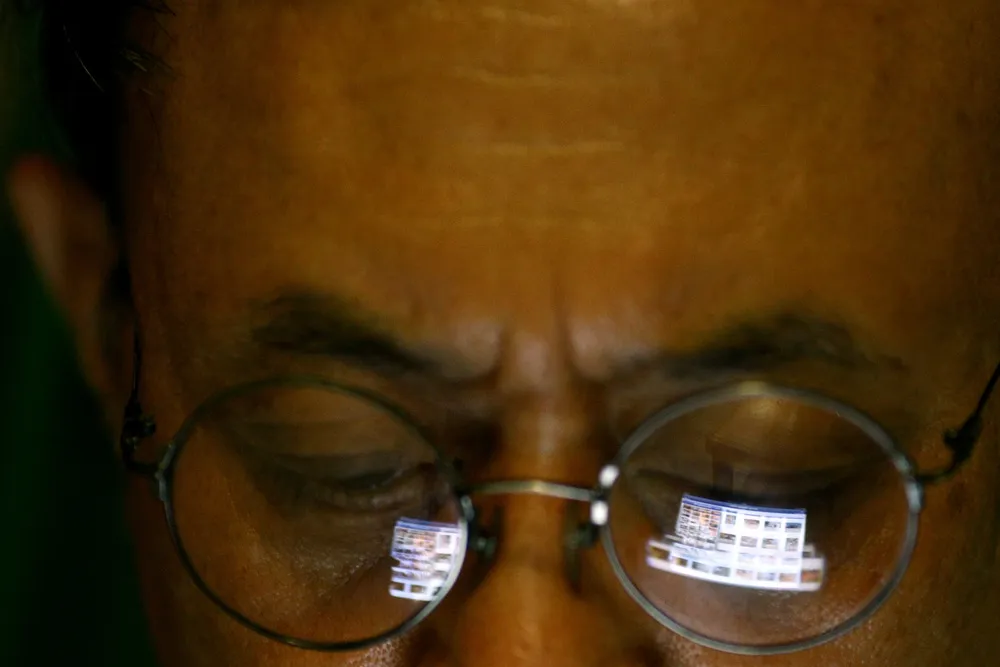
6. Vietnam
Leadership: Prime Minister Nguyen Tan Dung has been in power since 2006. How censorship works: Vietnam’s Communist Party-run government allows no privately held print or broadcast outlets. Under the 1999 Media Law (Article 1, Chapter 1), all media working in Vietnam must serve as “the mouthpiece of Party organizations.” The Central Propaganda Department holds mandatory weekly meetings with local newspaper, radio, and TV editors to hand down directives on which topics should be emphasized or censored in their news coverage. Forbidden topics include the activities of political dissidents and activists; factional divisions inside the Communist Party; human rights issues; and any mention of ethnic differences between the country’s once-divided northern and southern regions. Independent bloggers who report on sensitive issues have faced persecution through street-level attacks, arbitrary arrests, surveillance, and harsh prison sentences for anti-state charges. Vietnam is one of the world’s worst jailers of journalists, with at least 16 behind bars. Authorities widely block access to websites critical of the government, including such popular foreign-hosted blogs as Danlambao, which covers politics, human rights issues, and disputes with China. In September 2013, a new law extended state censorship to social media platforms, making it illegal to post any material, including foreign news articles, deemed to “oppose the state” or “harm national security.” Lowlight: Authorities have increasingly used Article 258, the anti-state law that vaguely criminalizes “abusing democratic freedoms,” to threaten and prosecute independent bloggers. At least three bloggers have been convicted under the law, which allows for seven-year prison sentences.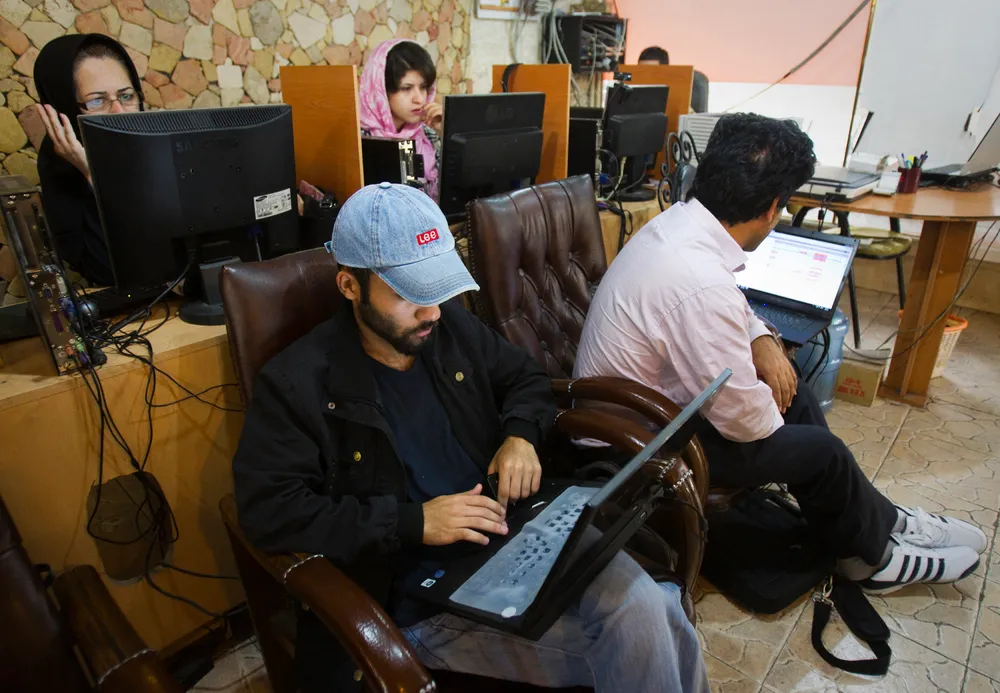
7. Iran
Leadership: Ayatollah Ali Khamenei has been supreme leader since 1989. Hassan Rouhani has been president since August 2013. How censorship works: The government uses mass and arbitrary detention as a means of silencing dissent and forcing journalists into exile. Iran became the world’s leading jailer of journalists in 2009 and has ranked among the world’s worst jailers of the press every year since. Iranian authorities maintain one of the toughest Internet censorship regimes in the world, blocking millions of websites, including news and social networking sites. They are suspected of using sophisticated techniques, such as setting up fake versions of popular websites and search engines, and the regime frequently jams satellite signals. The situation for the press has not improved under Rouhani despite the hopes of U.N. member states and human rights groups. Rouhani also failed to uphold his campaign promise to reinstate the 4,000-member Association of Iranian Journalists, which was forced to close in 2009. Lowlight: Iranian authorities control coverage of certain topics by tightening the small circle of journalists and news outlets allowed to report on them. In February, Iran’s Supreme National Security Council filed a lawsuit against conservative journalist Hossein Ghadyani and the newspaper he works for, Vatan-e Emrooz. The newspaper, which supports former President Mahmoud Ahmadinejad, had published four articles that criticized Iran’s international nuclear negotiations and alleged corruption in the government’s dealing with an oil company.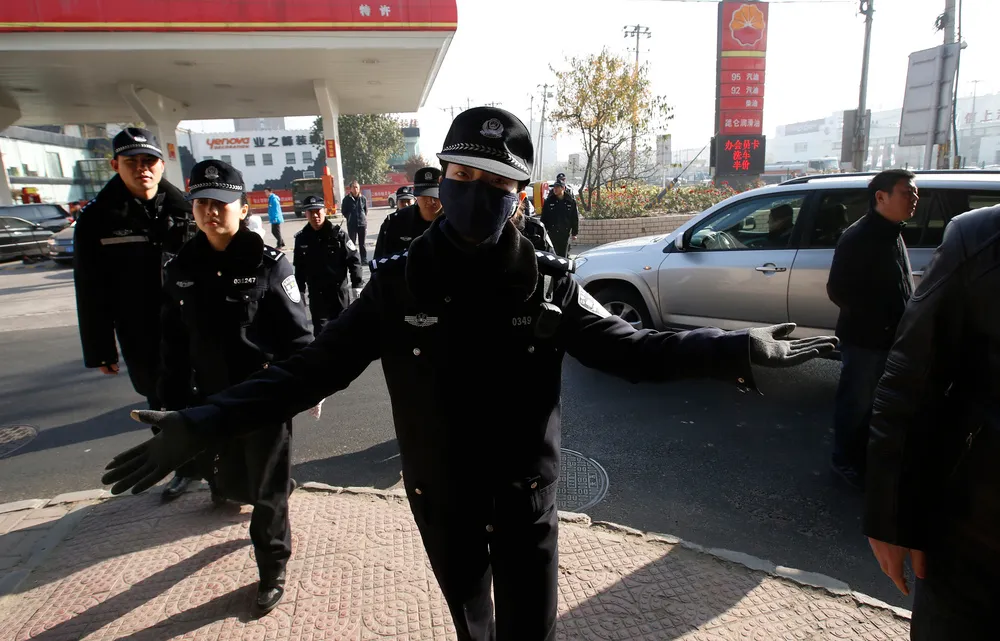
8. China
Leadership: President Xi Jinping, in office since March 2013. How censorship works: For more than a decade, China has been among the top three jailers of journalists in the world, a distinction that it is unlikely to lose any time soon. Document 9, a secret white paper dated April 22, 2014, which was widely leaked online and to the international press, included the directive to “combat seven political perils” and reject the concept of “universal values” and the promotion of “the West’s view of media.” Document 9 made it clear that the role of the media is to support the party’s unilateral rule. The paper reasserted the necessity for China’s technological and human censors to be ever more vigilant when keeping watch over the country’s 642 million Internet users-about 22 percent of the world’s online population. In late November 2014, Xu Xiao, a poetry and arts editor for the Beijing-based business magazine Caixin, was detained on suspicion of “endangering national security.” The Central Propaganda Department warned editors not to report on the investigation into Xu, raising fears that the tactics used to stifle political dissent would broaden to publications looking critically at the arts. International journalists trying to work in China have faced obstacles, with visas delayed or denied. Although some visa restrictions between the U.S. and China have eased, during a press conference in Beijing with U.S. President Barack Obama in November 2014 Xi argued that international journalists facing visa restrictions had brought the trouble on themselves. Lowlight: Gao Yu, one of 44 journalists behind bars in China, was detained on charges of illegally providing state secrets abroad, days after details of Document 9 appeared in Mirror Monthly, a Chinese-language political magazine in New York. Gao, 70, confessed on official state broadcaster CCTV, but during her closed trial, on November 21, 2014, she said that the confession was false and made only to prevent her son from being threatened and harassed, her lawyer said.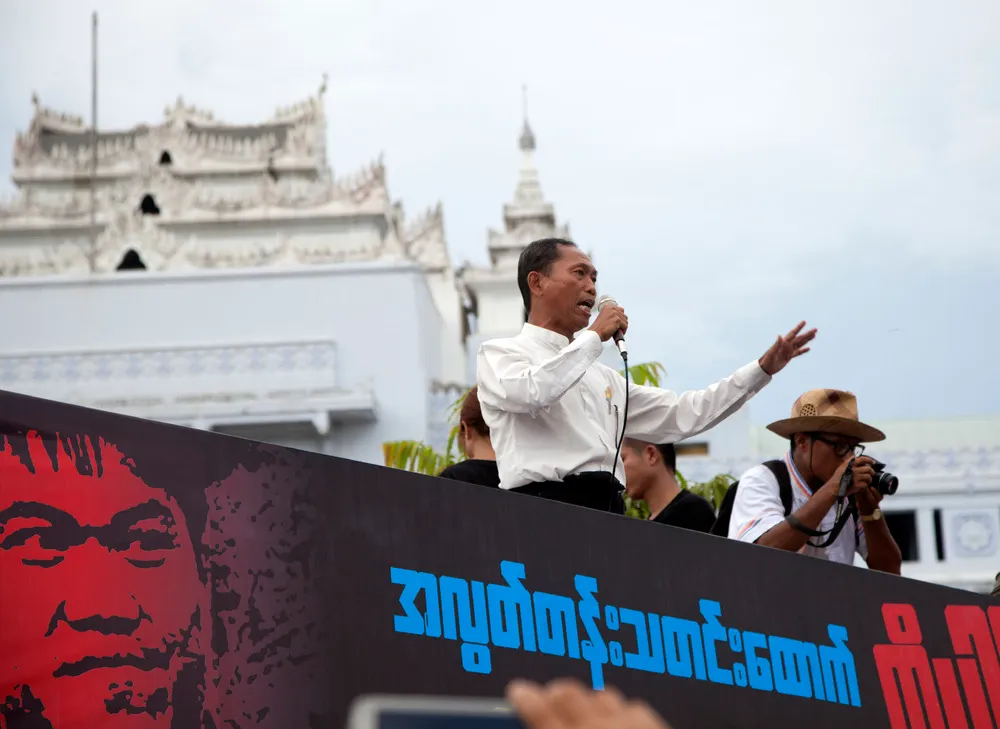
9. Myanmar
Leadership: President Thein Sein, a former general, has led a quasi-civilian administration since 2011. How censorship works: Despite an end to more than four decades of pre-publication censorship in 2012, Myanmar’s media remains tightly controlled. The Printers and Publishers Registration Law, enacted in March 2014, bans news that could be considered insulting to religion, disturbing to the rule of law, or harmful to ethnic unity. Publications must be registered under the law, and those found in violation of its vague provisions risk de-registration. National security-related laws, including the colonial-era 1923 Official Secrets Act, are used to threaten and imprison journalists who report on sensitive military matters. For example, five journalists with the independent weekly newspaper Unity were sentenced to 10 years in prison with hard labor, reduced on appeal to seven years, for reporting on a secretive military facility allegedly involved in chemical weapons production. Journalists are regularly barred from reporting from the military side of conflict with ethnic groups. Aung Kyaw Naing, a local freelance reporter who had embedded with rebel forces, was shot dead while in military custody in October 2014 after being apprehended by government troops in a restive area near the Thailand-Myanmar border. Lowlight: Three journalists and two publishers of the independent newspaper Bi Mon Te Nay were sentenced to two years in prison on charges of defaming the state. Their offense: publishing a false statement made by a political activist group that claimed that pro-democracy opposition leader Aung San Suu Kyi and ethnic group leaders had formed an interim government to replace Thein Sein’s administration.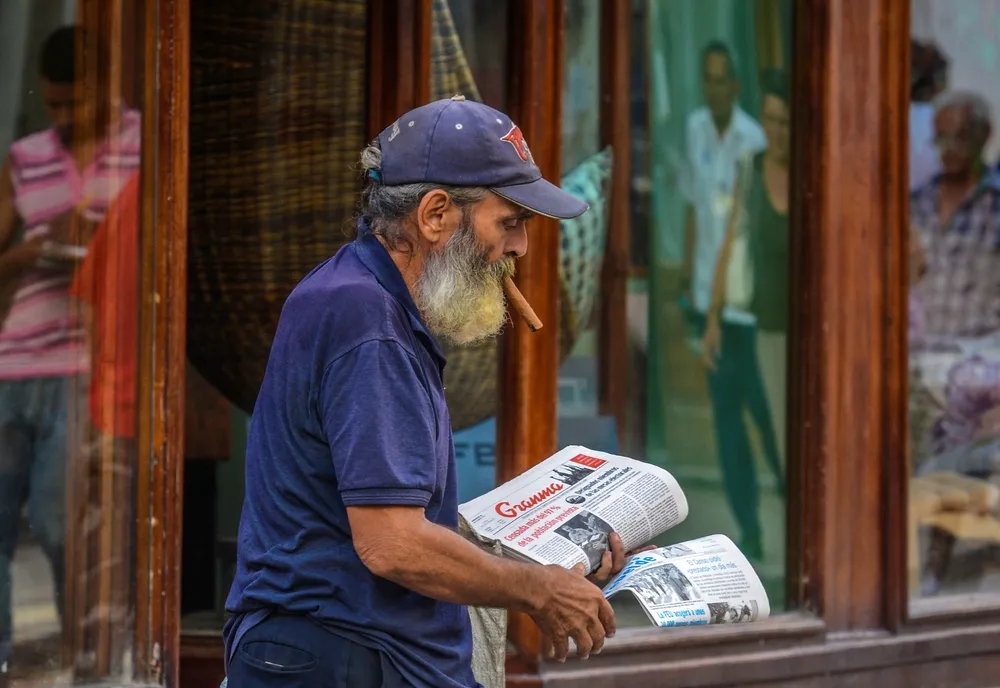
10. Cuba
Leadership: Raúl Castro, who took over the presidency from his brother, Fidel, in 2008. How censorship works:Despite significant improvements in the past few years-such as the elimination of exit visas that had prohibited most foreign travel for decades-Cuba continues to have the most restricted climate for press freedom in the Americas. The print and broadcast media are wholly controlled by the one-party Communist state, which has been in power for more than half a century and, by law, must be “in accordance with the goals of the socialist society.” Although the Internet has opened up some space for critical reporting, service providers are ordered to block objectionable content. Independent journalists and bloggers who work online use websites that are hosted overseas and must go to foreign embassies or hotels to upload content and get an unfiltered connection to the Internet. These critical blogs and online news platforms are largely inaccessible to the average Cuban, who still has not benefited from a high-speed Internet connection financed by Venezuela. Most Cubans do not have Internet at home. The government continues to target critical journalists through harassment, surveillance, and short-term detentions. Juliet Michelena Díaz, a contributor to a network of local citizen journalists, was imprisoned for seven months on anti-state charges after photographing an incident between residents and police in Havana. She was later declared innocent and freed. Visas for international journalists are granted selectively by officials. Lowlight: Though the government has for the most part done away with long-term detentions of journalists, author-turned-critical blogger Ángel Santiesteban Prats has been imprisoned since February 2013 on allegations of domestic violence. The writer and other local independent journalists maintain that he was targeted in retaliation for writing critically about the government on his blog, Los Hijos que Nadie Quiso (The Children Nobody Wanted.)
Methodology: The list of 10 most censored countries is based on CPJ research, as well as the expertise of the organization’s staff. Countries are measured with the use of a series of benchmarks, including the absence of privately owned or independent media, blocking of websites, restrictions on electronic recording and dissemination, license requirements to conduct journalism, restrictions on journalists’ movements, monitoring of journalists by authorities, jamming of foreign broadcasts, and blocking of foreign correspondents.